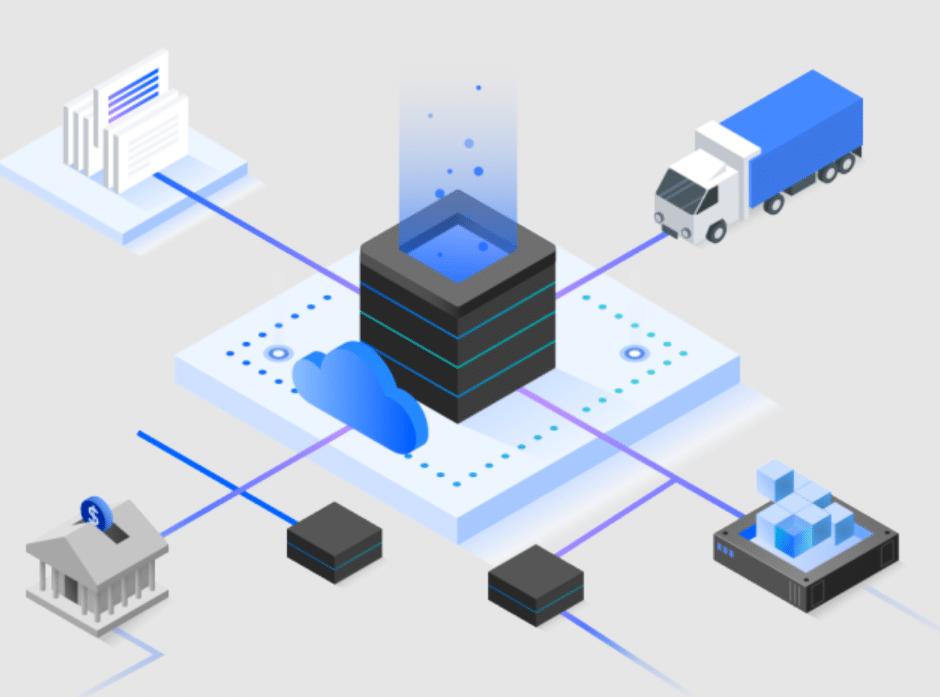Virtual Cloud Server – In the ever-evolving digital landscape, businesses face constant pressure to innovate, remain agile, and manage operational costs effectively. Traditional physical servers, while once the backbone of business operations, are rapidly being replaced by more efficient, scalable solutions. Enter the virtual cloud server—a key component of modern cloud computing that offers unmatched flexibility and power to organizations of all sizes.
A virtual cloud server (VCS) combines the best of virtualization and cloud technology to provide businesses with an on-demand computing environment, accessible from anywhere, at any time. This article explores the core concepts, benefits, use cases, and strategic advantages of virtual cloud servers, helping organizations understand how they can leverage this technology to accelerate growth and digital transformation.

What is a Virtual Cloud Server?
A virtual cloud server is a virtualized computing instance that operates within a cloud infrastructure. It functions like a traditional physical server but exists as software running on top of a hypervisor within a data center managed by a cloud provider.
Unlike physical servers, which are limited by hardware constraints and require manual maintenance, virtual cloud servers are created and managed through software. This abstraction from physical hardware enables greater flexibility, automation, and scalability. Popular platforms such as Amazon Web Services (AWS), Microsoft Azure, Google Cloud Platform (GCP), and DigitalOcean provide virtual cloud server services that businesses can deploy within minutes.
Key Features of Virtual Cloud Servers
Virtual cloud servers bring a suite of features that make them ideal for dynamic and fast-growing businesses:
-
Elastic Scalability
Resources like CPU, memory, and storage can be scaled up or down automatically based on workload requirements. -
Global Availability
VCS can be deployed in multiple geographic locations, ensuring low latency and high performance for users worldwide. -
Custom Configuration
Users can choose the operating system, processing power, storage type, and network settings to match specific application needs. -
High Availability and Redundancy
Cloud infrastructure supports failover, replication, and data backup to minimize downtime. -
Pay-as-You-Go Pricing
Businesses pay only for the resources they use, reducing upfront capital expenditures. -
Remote Access
Teams can access virtual servers securely via the internet, enabling remote work and 24/7 availability.
How Virtual Cloud Servers Work
At the heart of a virtual cloud server is virtualization technology. This involves running multiple virtual machines (VMs) on a single physical server using a hypervisor—software that partitions physical hardware into independent VMs.
Each virtual server has its own:
-
Operating system (Linux, Windows, etc.)
-
Dedicated virtual CPU (vCPU)
-
Memory (RAM)
-
Storage
-
Network interface
These virtual servers operate independently, and users can install applications, run services, and manage the server environment as if it were a standalone machine.
The cloud aspect comes from hosting these virtual servers in massive data centers managed by cloud service providers. Providers ensure the infrastructure is maintained, secured, and optimized, while customers manage their applications and data through user-friendly web portals or APIs.
Benefits of Using Virtual Cloud Servers
1. Cost Efficiency
With traditional servers, businesses must invest in expensive hardware and infrastructure. Virtual cloud servers eliminate the need for capital expenditure (CapEx) and switch to an operational expenditure (OpEx) model. Resources can be dynamically adjusted to avoid overprovisioning and underutilization.
2. Agility and Speed
Provisioning a physical server may take days or even weeks. In contrast, a virtual server can be deployed in minutes, allowing businesses to launch products, test environments, or scale applications rapidly.
3. Disaster Recovery and Backup
Most cloud providers offer automated backup and snapshot features. In case of failure or data loss, organizations can quickly restore systems and continue operations without significant downtime.
4. Security
Virtual cloud servers benefit from enterprise-grade security measures implemented by providers. Features include data encryption, firewalls, DDoS protection, and compliance with regulations like GDPR and HIPAA.
5. Environmental Impact
By optimizing server utilization through virtualization, data centers reduce energy waste. Businesses contribute to greener IT operations by moving to virtual cloud infrastructures.
Common Use Cases
Virtual cloud servers are versatile and can support a wide array of business and technical functions:
1. Web Hosting
Virtual servers are ideal for hosting websites, blogs, or content management systems like WordPress. They offer better scalability and uptime than shared hosting.
2. Application Development
Developers use VCS to create isolated environments for coding, testing, and deploying applications without interfering with live systems.
3. Database Hosting
Businesses can host relational (MySQL, PostgreSQL) or NoSQL (MongoDB, Cassandra) databases on virtual servers, with high performance and availability.
4. Enterprise Resource Planning (ERP)
ERP software like SAP or Oracle can be hosted on virtual servers, offering remote access and improved performance.
5. Game Server Hosting
Gaming companies often use VCS to host multiplayer game servers, ensuring low latency and scalability during traffic spikes.
6. Remote Desktops
Organizations can offer employees virtual desktops hosted on VCS, enabling secure access to company resources from anywhere.
Major Providers of Virtual Cloud Servers
Several key players offer robust virtual cloud server services. Choosing the right provider depends on your business size, technical needs, and budget.
1. Amazon EC2 (Elastic Compute Cloud)
AWS offers flexible compute capacity with various instance types for general purpose, compute-optimized, and memory-optimized workloads.
2. Microsoft Azure Virtual Machines
Azure VMs integrate well with Windows environments and provide excellent hybrid cloud support.
3. Google Compute Engine
GCP provides high-performance virtual machines, particularly suited for big data and analytics workloads.
4. DigitalOcean Droplets
Popular with developers and small businesses for its simplicity and cost-effectiveness.
5. Linode and Vultr
Affordable alternatives offering basic virtual server hosting with good performance for smaller applications.
Choosing the Right Virtual Cloud Server
When evaluating virtual cloud servers, consider the following factors:
1. Performance Requirements
Understand your workload demands. Applications that require high CPU or memory may need specialized VM types.
2. Operating System and Software Compatibility
Ensure the provider supports your preferred OS (Linux/Windows) and allows custom software installation.
3. Scalability
Look for auto-scaling capabilities to handle traffic spikes or growing data volumes without downtime.
4. Pricing Model
Compare hourly vs monthly pricing, bandwidth costs, and additional charges for storage or support.
5. Support and SLAs
Check customer support availability, response times, and guaranteed service-level agreements (SLAs).
6. Security and Compliance
If you’re in a regulated industry, ensure the provider meets necessary compliance standards and offers data encryption, audits, and access control.
Future of Virtual Cloud Servers
The future of virtual cloud servers is being shaped by several innovative trends:
1. Serverless Architecture
Though technically not based on virtual servers, serverless computing complements VCS by letting developers run functions without managing infrastructure.
2. AI and Automation
Artificial intelligence is increasingly being used to optimize resource allocation, predict system failures, and automate scaling decisions.
3. Edge Computing
Combining edge and virtual cloud servers allows processing to happen closer to the source of data (e.g., IoT devices), reducing latency and improving real-time response.
4. Containerization
While VCS runs full OS instances, containers like Docker run lightweight applications. VCS often serve as the host for containerized environments orchestrated by Kubernetes.
Conclusion
Virtual cloud servers are redefining how businesses manage their IT infrastructure. By offering a cost-effective, scalable, and secure platform, VCS enables companies to innovate faster, respond to market demands, and deliver superior customer experiences.
Whether you’re a small startup looking to launch your first app, or a large enterprise migrating legacy systems, virtual cloud servers offer the foundation you need to succeed in the digital era. As technology continues to evolve, the role of VCS will only grow, driving the next generation of business transformation.
